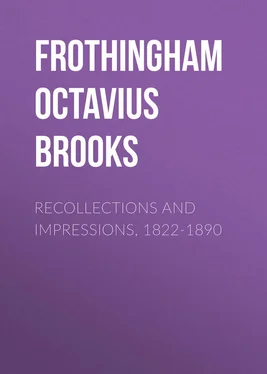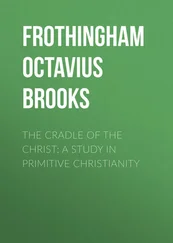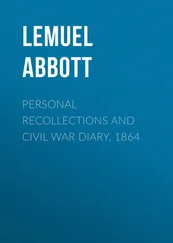Octavius Frothingham - Recollections and Impressions, 1822-1890
Здесь есть возможность читать онлайн «Octavius Frothingham - Recollections and Impressions, 1822-1890» — ознакомительный отрывок электронной книги совершенно бесплатно, а после прочтения отрывка купить полную версию. В некоторых случаях можно слушать аудио, скачать через торрент в формате fb2 и присутствует краткое содержание. Жанр: foreign_antique, foreign_prose, на английском языке. Описание произведения, (предисловие) а так же отзывы посетителей доступны на портале библиотеки ЛибКат.
- Название:Recollections and Impressions, 1822-1890
- Автор:
- Жанр:
- Год:неизвестен
- ISBN:нет данных
- Рейтинг книги:3 / 5. Голосов: 1
-
Избранное:Добавить в избранное
- Отзывы:
-
Ваша оценка:
- 60
- 1
- 2
- 3
- 4
- 5
Recollections and Impressions, 1822-1890: краткое содержание, описание и аннотация
Предлагаем к чтению аннотацию, описание, краткое содержание или предисловие (зависит от того, что написал сам автор книги «Recollections and Impressions, 1822-1890»). Если вы не нашли необходимую информацию о книге — напишите в комментариях, мы постараемся отыскать её.
Recollections and Impressions, 1822-1890 — читать онлайн ознакомительный отрывок
Ниже представлен текст книги, разбитый по страницам. Система сохранения места последней прочитанной страницы, позволяет с удобством читать онлайн бесплатно книгу «Recollections and Impressions, 1822-1890», без необходимости каждый раз заново искать на чём Вы остановились. Поставьте закладку, и сможете в любой момент перейти на страницу, на которой закончили чтение.
Интервал:
Закладка:
On the whole, then, I should say that manliness was Theodore Parker's crowning quality and supreme claim to distinction. That he had other most remarkable gifts is conceded as a matter of course. Everybody knows that he had. But this was his prime characteristic. The other gifts he had in spite of himself – his thirst for knowledge, his love of books, his all-devouring industry, his unfailing memory, his natural eloquence or power of affluent expression; but character men regard as less a gift than an acquisition, – the fruit of aspiration, resolve, fidelity, – the product of daily, nay, of hourly, endeavor. Hence it is that intellectual greatness does not impress the multitude; even genius has but a limited sway over the masses of mankind. But character goes to the roots of life. In fact, Theodore Parker's eminence as a man of thought and expression in words has concealed from the world at large the intrinsic quality of the person. His reputation as theologian, preacher, controversialist, has concealed the real greatness which comes to light as the dust of controversy subsides. The very causes in which the heroism of his manliness was displayed – as, for example, the anti-slavery cause, to which he devoted so much of his time and vitality – rendered inconspicuous the contribution he made to the treasury of humane feeling. Now that that great conflict is over, now that its agitations have ceased and its heats have cooled, the character of which this conflict revealed but a portion, the career in which this long agony was but an episode, loom up into distinctness. The greatest of all human achievements is a manly character – guileless, sincere, and brave; that he by all admission possessed. He earned it; he prayed for it; meditated for it; worked for it; – how hard, his private journals show. And for this he will not be forgotten. For this he will be remembered as one of the benefactors, one of the emancipators, of his kind.
From a shelf in his library, I took Schwegler's "Nachapostolische Zeitalter," a work which threw a flood of light on the problems of New-Testament criticism. This led to a study of the writings of F. C. Baur, the founder of the so-called "Tübingen School." A complete set of the Theologische Jahrbücher , the organ of his ideas, was imported from Germany, and carefully perused. These volumes contained full and minute studies on all the books of the New Testament – Gospels, Epistles, the writing termed "The Acts of the Apostles," with incidental glances at the "Apocalypse." The calm, consistent strength of these expositions commended them to my mind. The author was a university professor, a man of practical piety, a Lutheran preacher of high repute, simple, affectionate, faithful to his duties, quite unconscious that he was undermining anybody's faith, so deeply rooted was the old Lutheran freedom of criticism in regard to the Bible. In the German mind, religion and literature, Christianity and the Scriptures, were entirely distinct things. The scholar could sit in his library in one mood and could enter his pulpit in another, preserving in both the single-mindedness that became a Christian and a student.
Other theories have arisen since, but none that have taken hold of such eminent minds have appeared. Theodore Parker accepted it; James Martineau adopted its main proposition in several remarkable papers written at various times, last in the Unitarian magazine Old and New . In the brilliant lectures delivered in London, during the spring of 1880, on the Hibbert Foundation, Ernest Renan's striking account of early Christianity owed its force to the assumption of the fundamental postulate of the Tübingen School. In the latter years of his life, Baur summed up the results of his criticism in a pamphlet that was designed to meet objections; and in 1875-1877 his son-in-law, the learned Edward Zeller, one of his ablest disciples, an eminent professor of history at Berlin, published an earnest, carefully considered, masterly report of the writings of the now famous teacher, in the course of which he paid a merited tribute to his character, vindicated his views from the charge of haste and partisanship, and predicted for them a triumphant future. 1 1 "Vorträge und Abhandlungen," von E. Zeller, 2 vols., Leipzig.
The adoption of these opinions, so opposed to the views current in the community, compelled the adoption of a new basis for religious conviction. Christianity, in so far as it depended on the New Testament or the doctrines of the early Church, was discarded. The cardinal tenets of the Creed – the Deity of the Christ, the atonement, everlasting perdition – had been dismissed already, and I was virtually beyond the limits of the Confession. But Theism remained, and the spiritual nature of man with its craving for religious truth. Without going so far as Theodore Parker did, who maintained that the three primary beliefs of religion – the existence of God, the assurance of individual immortality, the reality of a moral law – were permanent, universal, and definite facts of human nature, found wherever man was found; without going so far as this, I contended that man had a spiritual nature; that this nature, on coming to consciousness of its powers and needs, gave expression to exalted beliefs, clothing them with authority, building them into temples, ordaining them in the form of ceremonies and priesthoods. In support of this opinion, appeal was made to the great religions of the world, to the substantial agreement of all sacred books, to the spontaneous homage paid, in all ages, to saints and prophets; to the essential accord of moral precepts all over the globe, to the example of Jesus, to the Beatitudes and Parables, to the respect given by rude people to the noblest persons, to the credences that inspire multitudes, to the teachings of Schleiermacher, Fichte, Constant, Cousin, Carlyle, Goethe, Emerson, in fact, to every leading writer of the last generation. All this was so beautiful, so consistent and convincing, so full of promise, so broad, plain, and inspiring that, with a fresh but miscalculated enthusiasm, over-sanguine, thoughtless, the young minister undertook to carry his congregation with him, but without success; so he went elsewhere. This action proceeded from the faith that Parker instilled. Parker was pre-eminently, to those who comprehended him, a believer.
In the words of D. A. Wasson, his successor in Music Hall:
Theodore Parker was one of the most energetic and religious believers these later centuries have known. This was the prime characteristic of the man. He did not agree in the details of his unbelieving with the majority of those around him, because it was part of his religion to think freely, part of their religion to forbear thinking freely on the highest matters. But he was not only a powerful believer in his own soul, but was the believing Hercules who went forth in the name of divine law to cleanse the Augean stables of the world… This, I repeat, and can not repeat with too much emphasis, was the characteristic of the man – sinewy, stalwart, prophetic, fervid, aggressive, believing… The Hercules rather than the Apollo of belief, it was not his to charm rocks and trees with immortal music, but to smite the hydra of publicity, iniquity, and consecrated falsehood with the club or mace of belief; if this might not suffice, then to burn out its foul life with the fire of his sarcasms.
To quote my own words, written in 1873 (see "Life." p. 566):
With him the religious sentiment was supreme. It had no roots in his being wholly distinct from its mental or sensible forms of expression. Never evaporating in mystical dreams nor entangled in the meshes of cunning speculation, it preserved its freshness and bloom and fragrance in every passage of his life. His sense of the reality of divine things was as strong as was ever felt by a man of such clear intelligence. His feeling never lost its glow, never was damped by misgiving, dimmed by doubt, or clouded by sorrow. Far from dreading to submit his faith to test, he courted tests; was as eager to hear the arguments against his belief as for it; was as fair in weighing evidence on the opponent's side as on his own. "Oh, that mine enemy had written a book!" he was ready to cry, not that he might demolish it, but that he might read it. He knew the writings of Moleschott, and talked with him personally; the books of Carl Vogt were not strange to him. The philosophy of Ludwig Büchner, if philosophy it can be called, was as familiar to him as to any of Büchner's disciples. He was intimate with the thoughts of Feuerbach. He drew into discussion every atheist and materialist he met, talked with them closely and confidentially, and rose from the interview more confident in the strength of his own positions than ever. Science he counted his best friend; relied on it for confirmation of his faith, and was only impatient because it moved no faster. All the materialists in and out of Christendom had no power to shake his conviction of the Infinite God and the immortal existence, nor would have had had he lived till he was a century old, for, in his view, the convictions were planted deep in human nature, and were demanded by the exigencies of human life. Moleschott respected Parker; Dessor was his confidential friend; Feuerbach would have taken him by the hand as a brother.
Читать дальшеИнтервал:
Закладка:
Похожие книги на «Recollections and Impressions, 1822-1890»
Представляем Вашему вниманию похожие книги на «Recollections and Impressions, 1822-1890» списком для выбора. Мы отобрали схожую по названию и смыслу литературу в надежде предоставить читателям больше вариантов отыскать новые, интересные, ещё непрочитанные произведения.
Обсуждение, отзывы о книге «Recollections and Impressions, 1822-1890» и просто собственные мнения читателей. Оставьте ваши комментарии, напишите, что Вы думаете о произведении, его смысле или главных героях. Укажите что конкретно понравилось, а что нет, и почему Вы так считаете.












